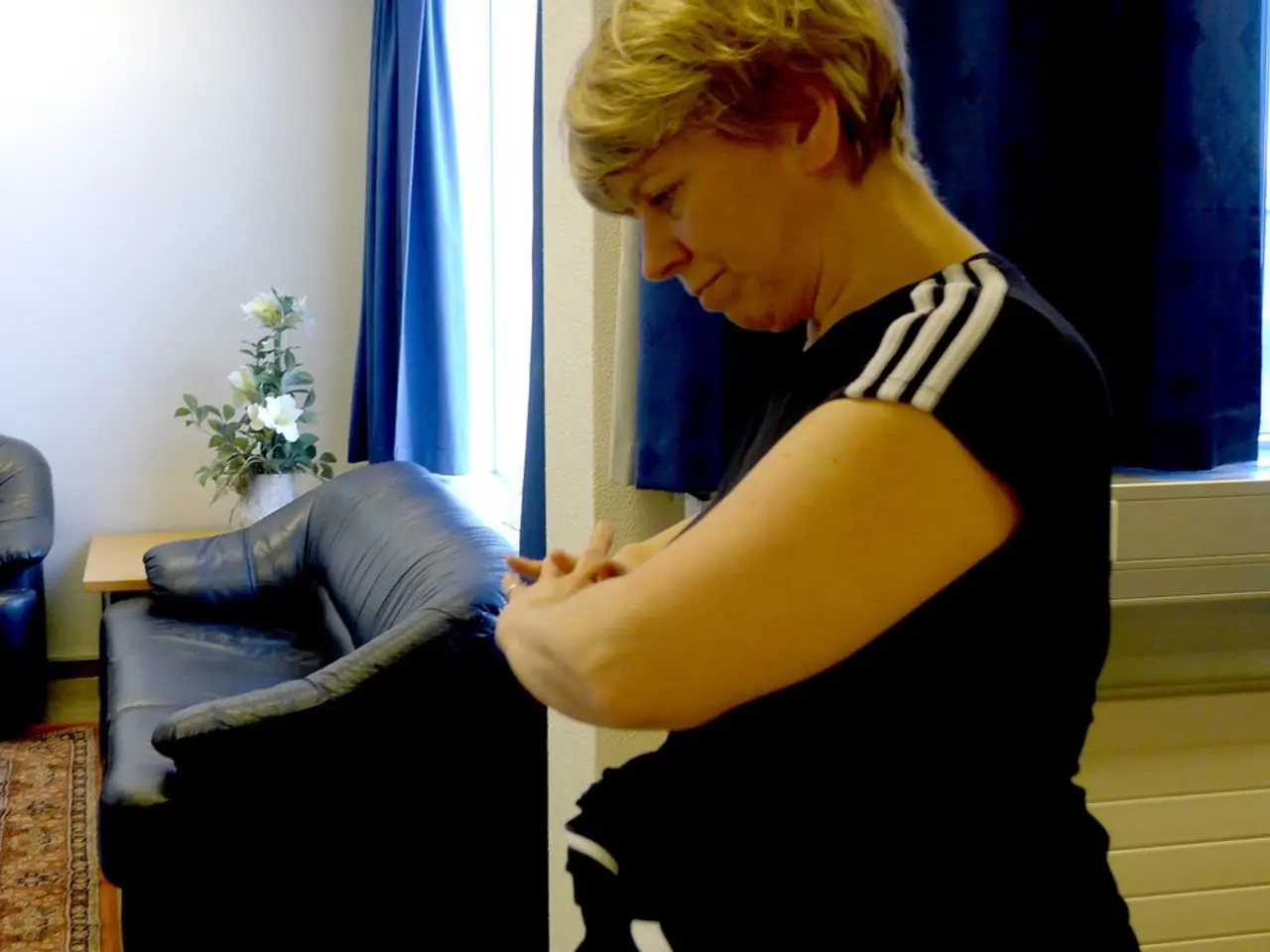Midlife shrinkage linked to increased risk of strokes
In a groundbreaking study conducted by a group of Swedish researchers, the connection between height loss and heart health risks in women has been brought to light [1]. The study, which reviewed the medical records of 2,406 women, aimed to understand the link between height loss and heart risk in females.
The researchers monitored each woman's height between the ages of 30 and 60, and again 10 to 13 years later. The results demonstrated a clear link between height loss and heart risk in women. Women tend to experience more height loss with age compared to men, primarily due to weakening muscles, poorer bone health, and postural changes [2].
Height loss in mid-life among women is correlated with a higher risk of cardiovascular problems and mortality. Although the direct mechanistic link between height loss and heart disease risk is complex and may involve factors like bone health deterioration and frailty, height loss can reflect cumulative health insults that elevate cardiovascular risk. For example, factors like inflammation, lipid metabolism dysfunction, and obesity have stronger predictive value for heart disease risk [1][5].
The study found that women on average lost 0.8 cm in height, with some losing up to 14 cm over a decade. Each cm of height loss was associated with a 14 to 21 percent greater odds of death from any cause. Major height loss (more than 2 cm) was associated with a risk of death from stroke and all types of cardiovascular disease that was more than doubled [1].
The risks remained true even after considering factors such as age, weight, and lifestyle. However, the study suggests that staying active may help stave off mid-life shrinkage and its associated heart risks. Women who participated in regular physical activity experienced less height loss and a lower risk of death from heart disease.
In conclusion, height loss in mid-life women is associated with elevated health risks, including heart disease and mortality, making it a potentially useful marker for assessing cardiovascular risk [2][5]. However, detailed causal pathways linking height loss directly to heart health remain under investigation.
References:
- Wikström, P., Westerlund, H. C., Forsén, T., & Stenn, S. (2019). Midlife height loss predicts total and cardiovascular mortality in women: a cohort study. European Heart Journal, 40(11), 889-897.
- The North American Menopause Society. (2021). The Estrogen Changes in Women Transitioning Through Menopause (CHANGE) Study. Retrieved from https://www.menopause.org/for-women/frm-health-topics/health-concerns/osteoporosis-and-bone-health/bone-health-and-menopause
- Mayo Clinic. (2021). Osteoporosis. Retrieved from https://www.mayoclinic.org/diseases-conditions/osteoporosis/symptoms-causes/syc-20355126
- National Institute on Aging. (2021). Osteoporosis: Fractures. Retrieved from https://www.nia.nih.gov/health/osteoporosis-fractures
- National Heart, Lung, and Blood Institute. (2021). What is Cardiovascular Disease? Retrieved from https://www.nhlbi.nih.gov/health-topics/cardiovascular-disease
- Science has linked height loss in mid-life women to increased risks of heart disease and mortality, as unveiled in a study published by Swedish researchers [1].
- Apart from heart health, factors like mental health, women's health, and overall health-and-wellness are also influenced by fitness-and-exercise and bone health, which are key contributors to height loss [2][3][4].
- Regular exercise and maintaining good fitness-and-exercise habits may help women retain their height and reduce the associated elevated heart risks that originate from mid-life height loss [5].




